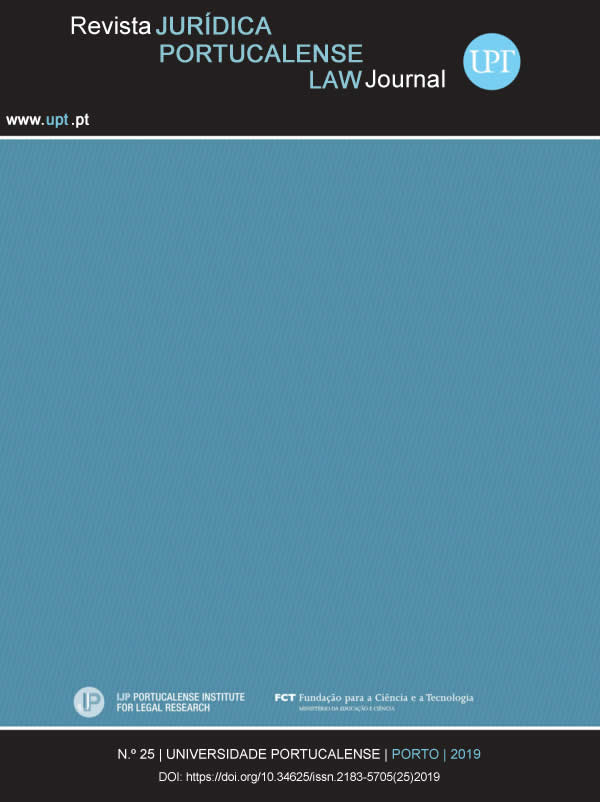Breves considerações sobre a Livrança: noção e características, função e importância, classificação e forma de extinção
Resumen
O presente trabalho resulta da experiência de alguns anos de ensino na disciplina de Direito das Empresas e vem responder à necessidade de criar um texto, simples e conciso, que sirva de base de estudo aos estudantes do Instituto de Contabilidade e Administração do Porto. O trabalho que agora vem à luz apenas incide sobre a Livrança. Sendo esta muito semelhante à Letra de Câmbio, o estudo das características gerais dos títulos de crédito, da relação jurídica cambiária e dos negócios cambiários a ela aplicáveis – sendo prévio ao estudo da Livrança – permite compreender a generalidade do seu regime jurídico. Com efeito, esta encontra a sua disciplina na mesma lei que rege a Letra de Câmbio, em concreto nos art.s 75.º a 78.º da LULL, sendo que por força do art. 77.º se remete, quase na sua totalidade, para o regime da Letra. O trabalho não apresenta debates doutrinários e tem como objectivo contribuir para compreender a função económica que assume este instrumento jurídico, bem como as virtualidades que em si encerra. Sendo certo que a protecção da boa-fé dos terceiros adquirentes e a celeridade da circulação exige simplicidade na sua transmissão e sendo igualmente certo que os títulos de crédito, para além de permitirem a mobilização dos créditos que incorporam, constituem um título executivo que pode dar lugar à sua cobrança coerciva - através da penhora dos bens e/ou rendimentos do devedor - o texto pretende registar os momentos típicos do regime jurídico da Livrança.
Citas
ANTUNES, José A. Engrácia, Uma introdução, 2.ª ed., Coimbra, Coimbra Editora, 2012
CORREIA, Lições de Direito Comercial, vol. III, Universidade de Coimbra, 1975
CUNHA, Carolina, Manual de Letras e Livranças, Coimbra, Almedina, 2016
DELGADO, Abel, Lei Uniforme sobre Letras e Livranças, Anotada, 6.º ed., actualizada com a colaboração de Filomena Delgado, Livraria Petrony, Lisboa, 1990
FURTADO, Jorge Henrique da Cruz Pinto, Títulos de Crédito – Letra – Livrança- Cheque, 2ª ed. Coimbra, Almedina, 2017
GOMES, Maria João, Guia prático das Letras e Livranças, Porto, Legis Editora, 2007
MARTINS, Alexandre Soveral, Títulos de Crédito e valores mobiliários – Parte I – Títulos de Crédito, vol. I, Coimbra, Almedina, 2008
REIS, Alcindo Ferreira, A responsabilidade do avalista do aceitante de Letra de Câmbio e do subscritor de Livrança – o problema do protesto por falta de pagamento, Porto, Legis Editora, 2011
RODRIGUES, Madeira, Das Letras: Aval e Protesto, Coimbra, Almedina, 2005
Descargas
Publicado
Cómo citar
Número
Sección
Licencia
Authors who published in the journal agree to the following terms:
- The Authors grant the Journal the right of first publication, and other non-exclusive publishing rights, licensed under the Creative Commons Attribution License which allows the sharing of work with recognition of its initial publication in this journal.
- Authors are able to take on additional contracts separately, non-exclusive distribution of the version of the paper published in this journal (ex .: publish in an institutional repository or as a chapter in a book), with an acknowledgement of its initial publication in this journal.
- Authors are permitted and encouraged to post and distribute their work online (eg .: in institutional repositories or on their website) at any point before or during the submission process, as it can lead to productive exchanges, as well as increase the impact and the citation of published work (See The Effect of Open Access).
RJP does not apply submission, publication or any other fees of any nature. Its articles are open access, with the goal of disseminating scientific knowledge and the debate of legal topics in the area of Legal Sciences.






